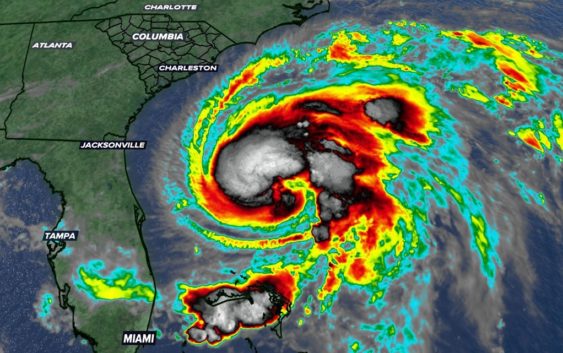- State of Texas wants you to report damage from flooding | In English and Spanish
- Texas flooding: Weather conditions in Houston-area communities with high water
- Texas flooding: Weather conditions in Houston-area communities with high water; resources for flood victims
- Have you been affected by the floods? Here's what Harris Co. wants you to do with debris
- Texas flooding: Resources for flood victims, plus conditions in Houston-area communities with high water
South Carolina's hospitals, already hit by pandemic, brace for 2020 hurricanes

The South Carolina Hospital Association says hospitals are writing new plans to prepare for the brunt of the 2020 hurricane season
COLUMBIA, S.C. — As the summer heats up and tropical activity continues, South Carolina’s hospitals are trying to decide if it’s better to shelter in place and ride out a storm or evacuate patients to other, already stressed hospitals in the middle of a pandemic.
John Williams with the South Carolina Hospital Association said, usually, hospitals have an agreed upon plan to deal with moving patients.
“We send out a mutual aid agreement, which is an agreement throughout the state that hospitals will assist one another if a coast is experiencing a hurricane. The hospitals from the coastal areas will then be transferred inland,” Williams said Friday.
Williams, who has been the SCHA’s Director of Emergency Preparedness for three years, said the COVID-19 pandemic brings a new challenge to the plan.
The usual plan to move patients inland might change this year as hospitals and the government are looking at contingencies. Hospitals across the state and region are dealing with capacity and safety issues due to the pandemic.
“What I can say is we are encouraging our state and federal partners to allow hospitals to make the decision on what’s best for the patients,” Williams said.
Williams said the new hurricane disaster plans are being written and are fluid as the pandemic situation and weather patterns change. This year, hospitals might decide to ride out a less severe storm.
“We have shown that we can get through hard times, we’ve had situations where hospitals were asked to evacuate almost five years in a row. We’ve shown we can do that. Now, we need to show that we can make the decision to shelter in place and stay just as safe as if they were asked to leave. As long as the storm– is safe enough to do it with the storm,” Williams said.
Moving forward, Williams said they’ll work with federal and state partners to determine the best plans on a case by case basis, depending on specific storm severity.
However, one concern with the usual evacuation practice is it can sometimes take extended time for hospitals to come back online after full evacuations inland, according to Williams.